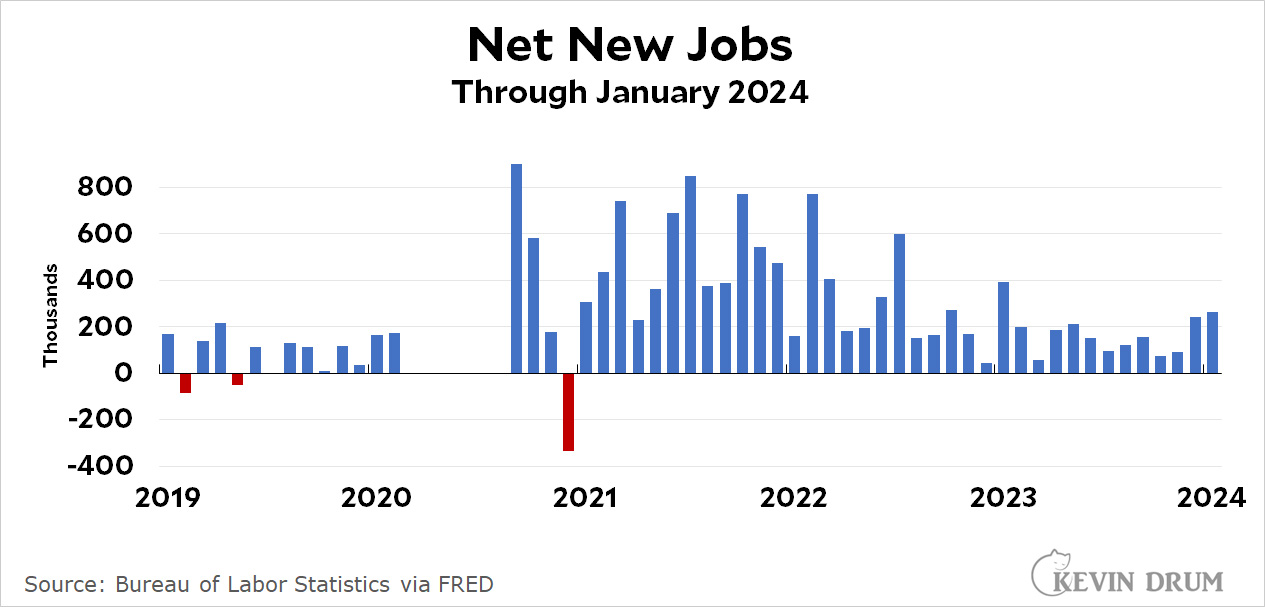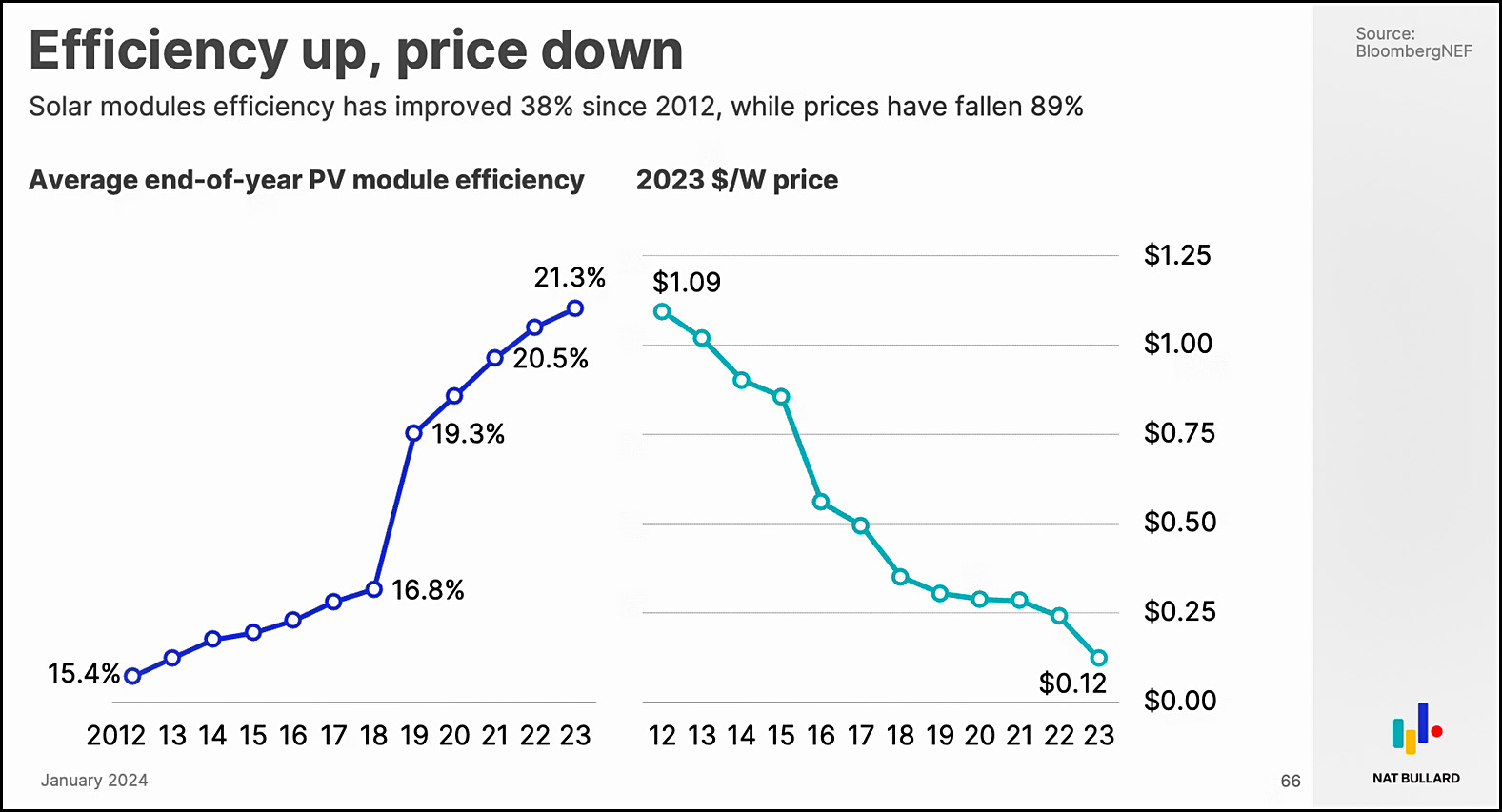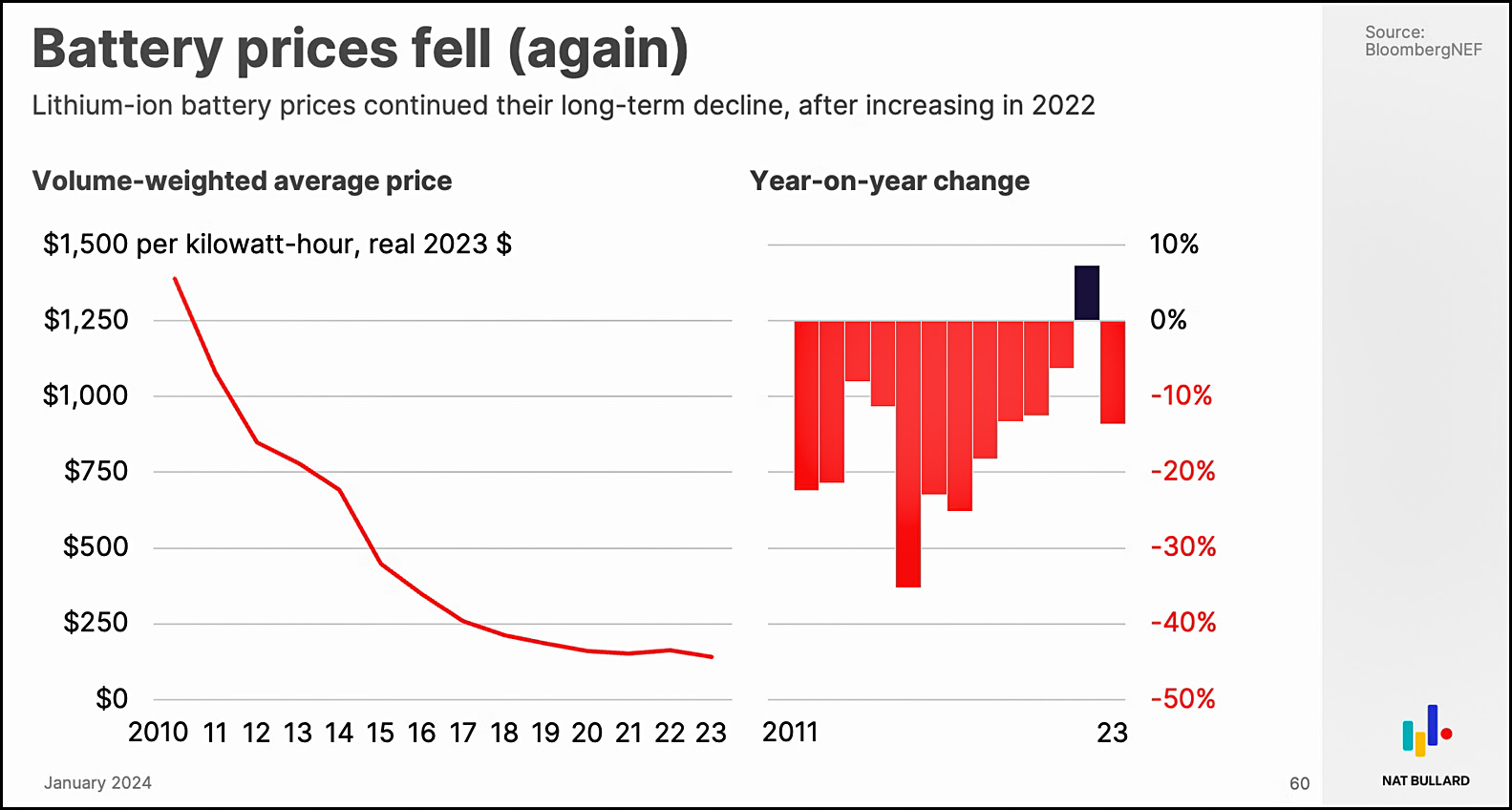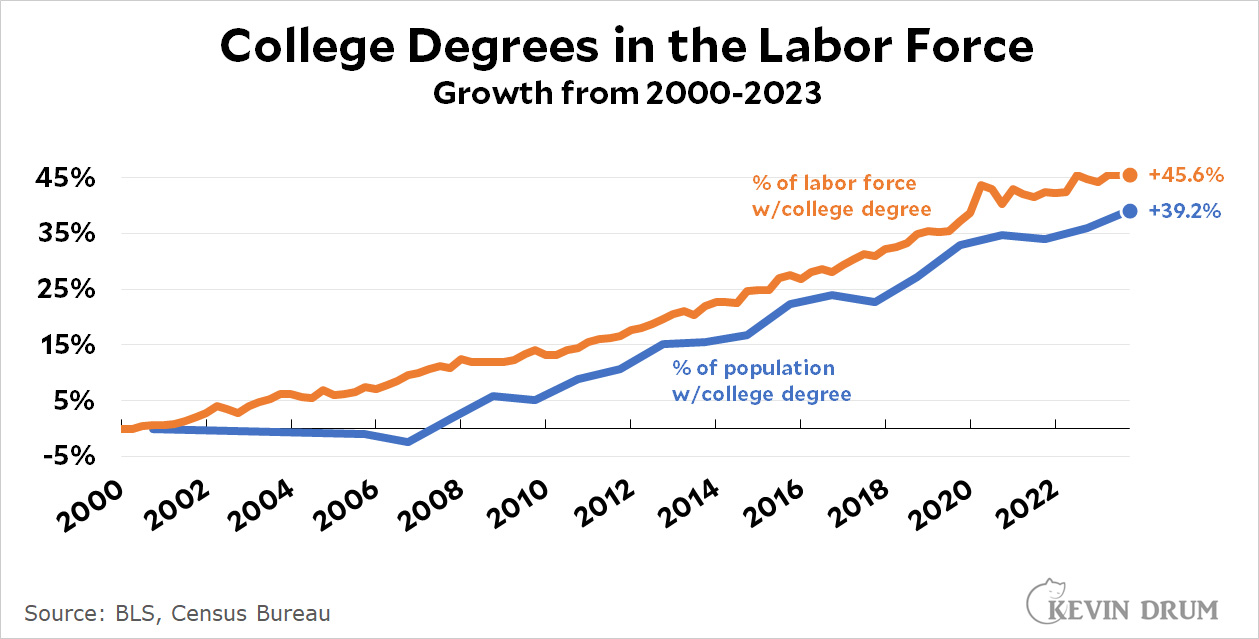Ezra Klein asks today, "Why haven't the Democrats completely cleaned the Republicans' clock?"
Actually it's Ruy Teixeira who asked that question, and it's one I share. I mean, Republicans have turned into complete loons. Democrats should have been able to build a huge and enduring lead over the past decade. Why haven't they?
Teixeira suggests it's because Democrats have lost blue-collar voters:
We have to get back to some of the underlying trends that have affected working class voters in the United States and how they’ve experienced their lives, and how their communities have evolved and the resentments they have about the various political parties and what they stand for.
....I tend to believe if Democrats could produce rising incomes and wages for most working-class voters for many, many years and transformed the political economy of the United States into something pretty different and perceived as something pretty different than what they’ve experienced in the last several decades, do I think they’d benefit and be able to dominate a Republican Party whose economic policies are far less salubrious? Yes. I do think that’s, in fact, possible.
That is possible. Here's a chart I've posted before, though it's been a while:
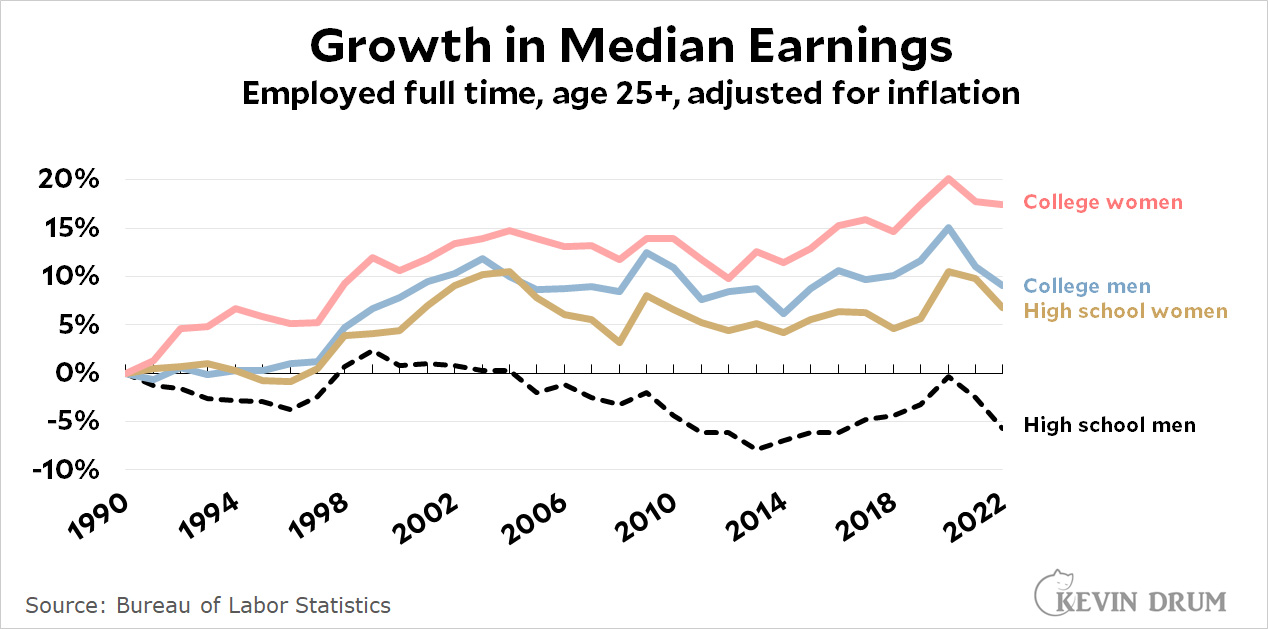 Over the last 30 years college educated workers have seen their earnings go up. Not a whole lot, but at least up. The same is true of women who only completed high school.
Over the last 30 years college educated workers have seen their earnings go up. Not a whole lot, but at least up. The same is true of women who only completed high school.
But men with only a high school diploma have seen their incomes slide and then slide some more. There were brief exceptions during the expansions of the late '90s and aughts, but they didn't last. Right now, men with no college earn 6% less than they did 30 years ago. The college kids, who were already making more, have opened up ever bigger leads over time.
In other words, it's really true that blue-collar men in particular have an economic beef they probably don't think Democrats take seriously. On the other hand, this started as far back as Nixon, long before neoliberals took over the party. It's also true that by far the worst decade for blue-collar men was the Reagan era and the best decade was the Clinton era. But they loved Reagan and didn't care much for Clinton. Economics just doesn't seem like it can explain much.
Every time this comes up, I refresh myself on the evidence and end up coming back to the same thing: the two drivers of Democratic losses are race and culture. Race is obvious: the white South has switched pretty much completely from Democratic to Republican and it was quite obviously due to the Civil Rights Act and other racial turnabouts of the '60s and beyond. Today, the Republican Party is almost entirely white.¹
Culture is also fairly obvious because we've talked it to death over the past couple of decades. Working class discontent with liberals has been driven by an underlying long-term trend starting in the counterculture '60s and then supercharged by Fox News starting in the late '90s. Fox may tell their audience that Democrats are bad for the economy, but they spend ten times as much time obsessing over the latest cultural outrage from liberals. You could pretty much write a political history of the right just by listing the most common subjects covered by Fox News over the years since 2001. It's gone from Muslims to voter fraud to the tea party to Critical Race Theory to whatever they decide to focus on this year.
Research suggests that Fox News generates about 3% more votes for Republicans than they'd otherwise get. In a 50-50 electorate, that's a lot. And it doesn't help that Democrats make themselves so easy to attack. From "Defund the Police" to extreme softness on the border to defending trans girls competing in high school sports, liberals have been pushing the boundaries of social conventions pretty hard. That scares ordinary people and costs votes.
There's probably not a lot we can do about race. Some people are racists and that's that. We just have to fight them. But we could probably tone down the cultural leftism and adopt moderately more populist economic policies. It wouldn't take a lot. But it might make enough of a difference to sink the Republicans for the coming decade.
¹In Congress, there are currently four Black Republican House members out of 222 and one Black senator out of 49. That's less than 2%.



